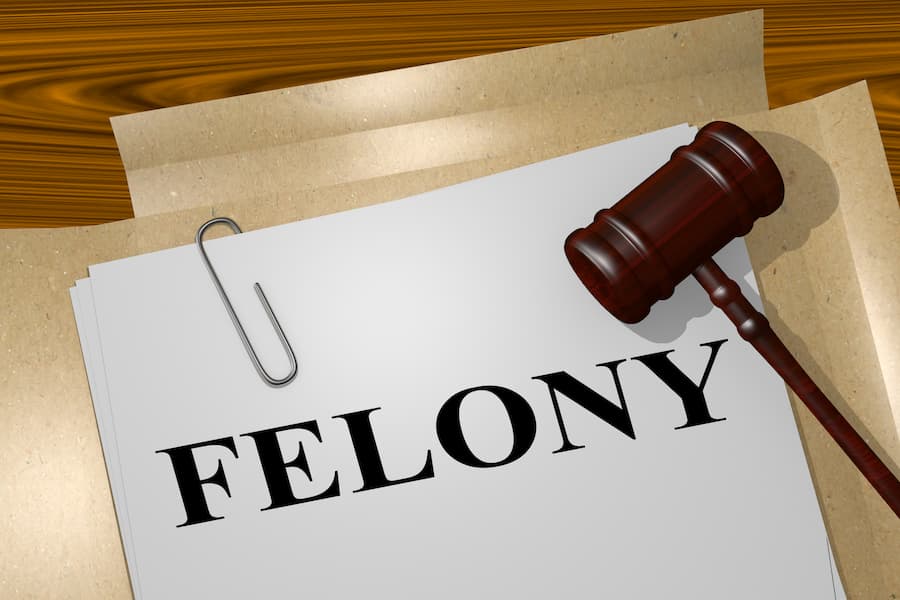The legal system categorizes crimes into various levels of severity, and among the most serious are felonies. Felonies encompass a wide range of offenses, each carrying significant legal implications. Understanding what constitutes a felony, its classifications, and potential consequences is crucial for anyone navigating the complexities of the legal landscape.
Defining Felony Charges
In the realm of criminal law, felonies are serious offenses that typically involve violence, harm to individuals, substantial property damage, or significant societal impact. These crimes often include murder, robbery, sexual assault, drug trafficking, and certain forms of fraud or white-collar crimes. Felonies are distinct from misdemeanors due to their gravity and carry more severe penalties.
Classification of Felonies
Felony charges can be further categorized based on their severity, often classified into different classes or degrees. The classification system varies by jurisdiction but generally includes degrees such as first, second, or third-degree felonies. The severity of punishment typically corresponds to the degree of the felony, with first-degree felonies carrying the most severe penalties.
Legal Consequences
The consequences of a felony conviction can be far-reaching and impactful. Penalties may include substantial fines, lengthy imprisonment in state or federal prisons, probation, community service, and the loss of certain civil rights such as voting or possessing firearms. Additionally, a felony record can significantly impact employment opportunities, housing options, and personal relationships.
Legal Process
The legal process for felony charges involves multiple stages, starting with arrest and culminating in trial or plea negotiations. After arrest, there’s a pre-trial phase involving arraignment, bail or bond hearings, and preliminary hearings. Subsequently, there might be motions filed, witness testimonies, and evidence gathering, leading up to a trial. In some cases, plea bargains or negotiations might occur, potentially resulting in reduced charges or sentencing.
Legal Representation
Navigating felony charges requires skilled legal representation. It’s essential to engage an experienced criminal defense attorney specializing in handling felony cases. A competent lawyer will assess the case, build a robust defense strategy, advocate for the accused, and guide them through the legal proceedings, ensuring their rights are protected at every stage.
The Burden of Proof
In criminal cases, the burden of proof lies with the prosecution. They must establish the accused’s guilt “beyond a reasonable doubt.” This standard is the highest burden of proof in legal proceedings. If the prosecution fails to meet this standard, the accused is entitled to an acquittal.
Considerations for Defense
A defense strategy for felony charges often revolves around establishing reasonable doubt or presenting evidence that challenges the prosecution’s case. This may include presenting alibis, disproving witness credibility, questioning the evidence’s admissibility, or demonstrating the accused’s lack of intent or involvement in the alleged crime.
Impact on Future Opportunities
Apart from immediate legal consequences, a felony conviction can have long-term repercussions. It can affect employment prospects, professional licenses, educational opportunities, and housing options. Some felonies may also result in the loss of certain civil rights, which can significantly impact an individual’s future.
Felony charges are serious legal matters that demand careful consideration and a thorough understanding of the legal process. The implications of felony convictions extend beyond the immediate consequences, affecting various aspects of an individual’s life for years to come.
Navigating felony charges requires a proactive approach, seeking legal counsel, understanding one’s rights, and actively participating in building a defense. Being informed about the nature of felony charges, their legal implications, and the available defense strategies is essential in safeguarding one’s rights and pursuing a fair legal outcome.
Understanding the gravity of felony charges empowers individuals to make informed decisions, access appropriate legal representation, and actively engage in their defense, ensuring a fair and just legal process.
Facing felony charges? Need bail assistance? Contact Better Bail today for expert help in navigating your legal journey.

